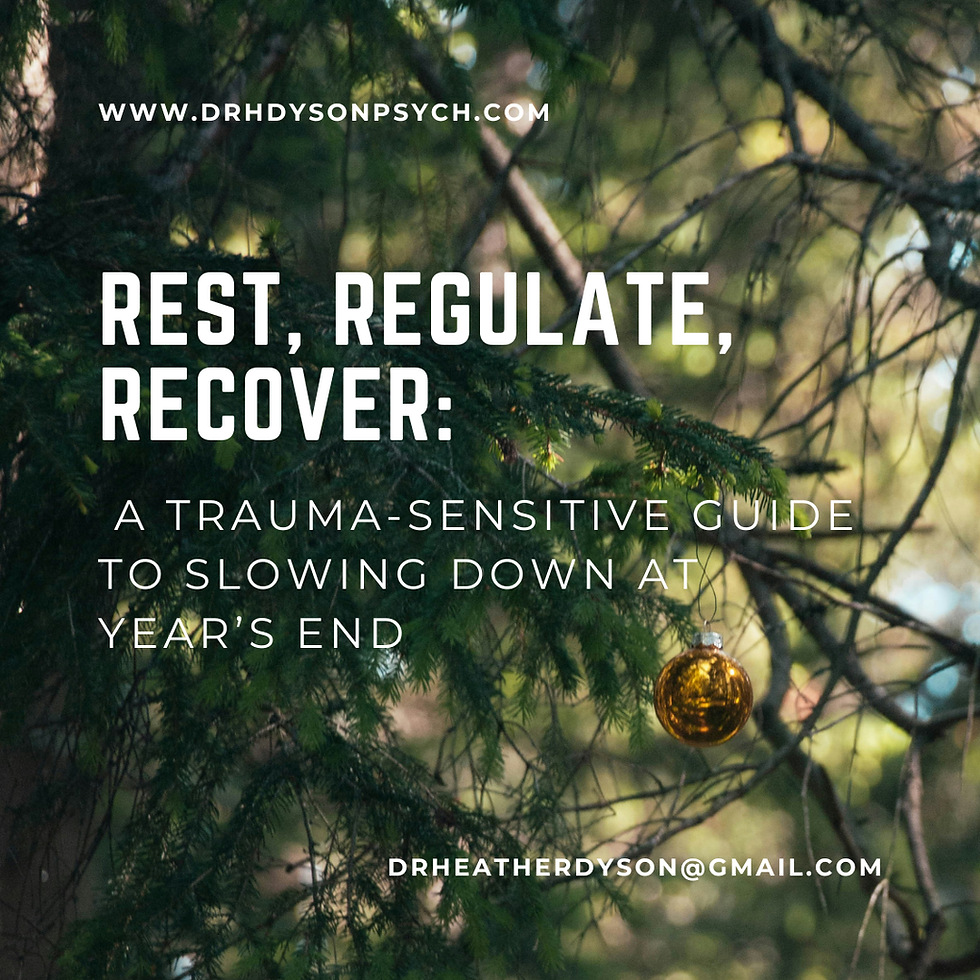PTSD in Refugees and Asylum Seekers
- Dr Heather Dyson

- May 2, 2023
- 2 min read

Due to a number of factors, from conflict to climate change, the number of refugees and asylum seekers has reached unprecedented levels across the world. Most of them are escaping turbulent war zones, persecution and massive economic disruption, which means that they have likely endured multiple traumatic events. Studies have shown that 30% of refugees and asylum seekers experience high rates of depression, anxiety and Post Traumatic Stress Disorder (PTSD).
Why do refugees and asylum seekers experience PTSD?
There are a number of reasons why asylum seekers experience PTSD and other mental health conditions. Many refugees have experienced violence, including rape, murder and torture, before even embarking on the often-harrowing journeys to a place where they can seek asylum. Going through such trauma means that they are more likely to develop PTSD, as well as other mental health conditions. Discrimination and a lack of support from ‘safe’ countries and governments can also worsen the symptoms of PTSD.
What symptoms would I see in a refugee or asylum seeker who is suffering from PTSD?
Conditions such as PTSD are likely compounded by the overwhelming loss and uncertainty that come with fleeing your home and loved ones. This may add to feelings of dissociation, where the person feels disconnected from the world around them, a common symptom of PTSD. They can also feel emotionally numb and not want to take part in activities that they previously enjoyed.
The rhetoric of discrimination that is often displayed in the media and by certain politicians can also add to this sense of isolation and may cause further interpersonal difficulties and emotional dysregulation.
Experiencing violent trauma may result in flashbacks or nightmares, which means that the person may re-experience the traumatic event. You may also notice hyperarousal, which can be characterised with the following symptoms:
hypervigilance (a state of constantly assessing potential threats around you)
Irritability or aggression
Risky or destructive behaviour
Heightened startle reactions
Difficulty concentrating
Difficulty sleeping
How can I help a refugee or asylum seeker with PTSD?
Listen. As with all mental health issues, often the most important thing you can do is just listen to the person who is suffering. Give them time to speak and validate their feelings. You can do this by using phrases such as ‘that must have been really hard for you’ or ‘I’m truly sorry you’ve had to go through that.’ People are unique and every refugee and asylum seeker will have had their own experience. It’s important to recognise their individual concerns and create a safe, non-judgemental space for them to share their feelings. Ultimately, feeling that they are supported and not alone is a positive first step.
It’s vital to help them access the right support. The Refugee Council have a specialised mental health support for refugees and asylum seekers. A lot of refugee charities have counsellors who specialise in treating refugees and asylum seekers. The charity Mind has a list of useful contacts for those suffering from PTSD which can be found here. If they have access to a GP, you may suggest that they speak to them.
Photo by Eric Masur on Unsplash




Comments